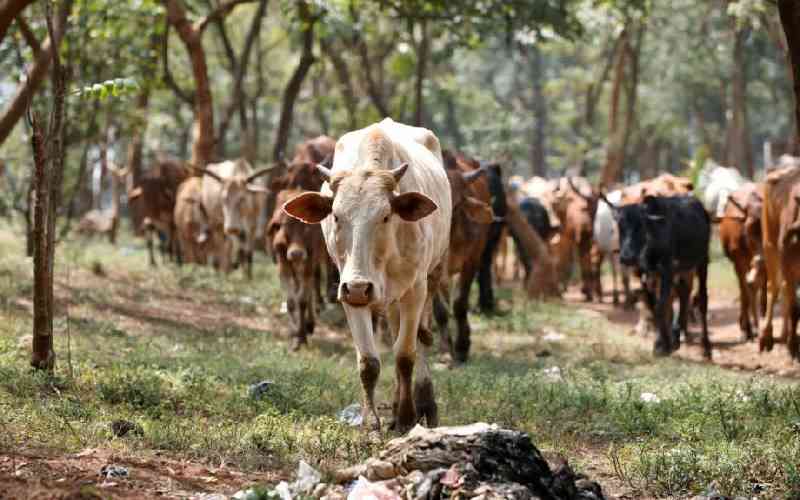
"Dear Customer, we are experiencing delays on all M-Pesa transactions. We will advise once this is fully restored by our partners," one tier one bank told its customers in a text message.
The communications regulator, the Communications Authority of Kenya (CA), is permitted by law to sanction any telecommunications company that inconveniences customers through service interruptions as a result of omission on its part.
The Standard reached out to CA on what action it will take on Safaricom if any but they had not responded by press time.
Distressed Kenyans gave accounts of how the outage placed them in embarrassing situations.
"I was held at a petrol station after fuelling my car because all the money I had was in my M-Pesa, yet I couldn't pay," said a lady who identified herself only as Njoki.
"It took the intervention of my husband, who drove all the way to come rescue me from the situation."
Another user, who sought anonymity, said they were held at a hotel until they could pay for their food.
"I couldn't leave, otherwise they would have thought I was running away. It was very awkward and embarrassing," he told The Standard.
The law provides for fines should any outage by an operator be deemed to be the product of omissions by telcos.
"All M-Pesa services are now available," said Safaricom yesterday afternoon without divulging additional details after restoring the service.
"We apologise for any inconvenience caused." When reached out for more information, Safaricom did not want to add.
Tuesday's disruption is the latest in a series of glitches, with the service suffering an outage for several hours in August last year that paralysed bank to M-Pesa transfers.
An operator found in breach risks a fine of up to 0.2 per cent of its revenues, which could run into hundreds of millions.
The possibility of telecommunications service outages has in the past been viewed by government experts as a threat to the economy, especially for critical services such as money transfers.
Stay informed. Subscribe to our newsletter
A 2016 Treasury report and subsequent Treasury reports have often warned that a collapse of the M-Pesa service could, for instance, cause widespread disruption in the economy as witnessed yesterday.
This means M-Pesa is classified as a systemic risk to the country's economy, underlining its crucial role.
CA has been considering imposing steeper penalties on operators that offer poor-quality voice, data and messaging services.
Before the adoption of the 0.2 per cent gross revenue fine, firms were required to pay a flat rate of Sh500,000, which the communications regulator at the time deemed too lenient.
In 2017, the CA slapped Safaricom with a hefty penalty of Sh270 million for failing to meet the set standards on call quality.
Safaricom apologised to its users yesterday after restoring its services after a few hours of downtime, which affected its mobile money service.
Tuesday's outage of Safaricom's M-Pesa mobile money service, leaving millions of Kenyans without access to essential financial transactions, reignited debate about its separation from Safaricom.
The debate, which has been simmering for years, centres on concerns that M-Pesa is virtually synonymous with mobile money in Kenya, with over 29 million active users. This dominance, some argue, stifles competition and innovation in the fintech sector.
M-Pesa accounts for about 99.9 per cent of the value of mobile money transactions, underlining the entrenchment of the platform in the economy.
M-Pesa is seen as a de facto national payment system, which makes it a critical part of the economy.
 The Standard Group Plc is a
multi-media organization with investments in media platforms spanning newspaper
print operations, television, radio broadcasting, digital and online services. The
Standard Group is recognized as a leading multi-media house in Kenya with a key
influence in matters of national and international interest.
The Standard Group Plc is a
multi-media organization with investments in media platforms spanning newspaper
print operations, television, radio broadcasting, digital and online services. The
Standard Group is recognized as a leading multi-media house in Kenya with a key
influence in matters of national and international interest.
 The Standard Group Plc is a
multi-media organization with investments in media platforms spanning newspaper
print operations, television, radio broadcasting, digital and online services. The
Standard Group is recognized as a leading multi-media house in Kenya with a key
influence in matters of national and international interest.
The Standard Group Plc is a
multi-media organization with investments in media platforms spanning newspaper
print operations, television, radio broadcasting, digital and online services. The
Standard Group is recognized as a leading multi-media house in Kenya with a key
influence in matters of national and international interest.





